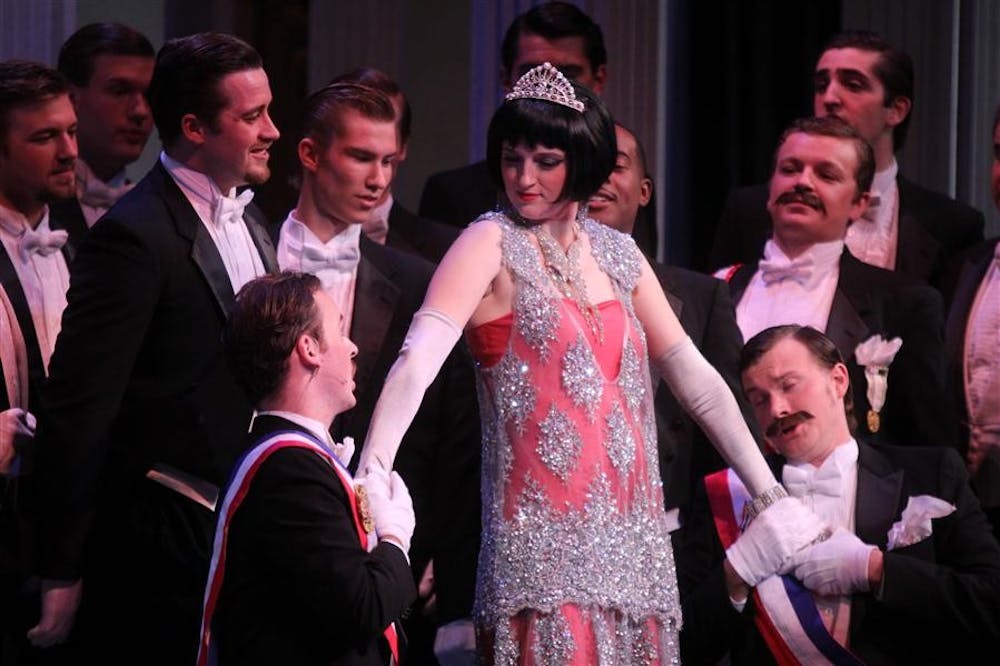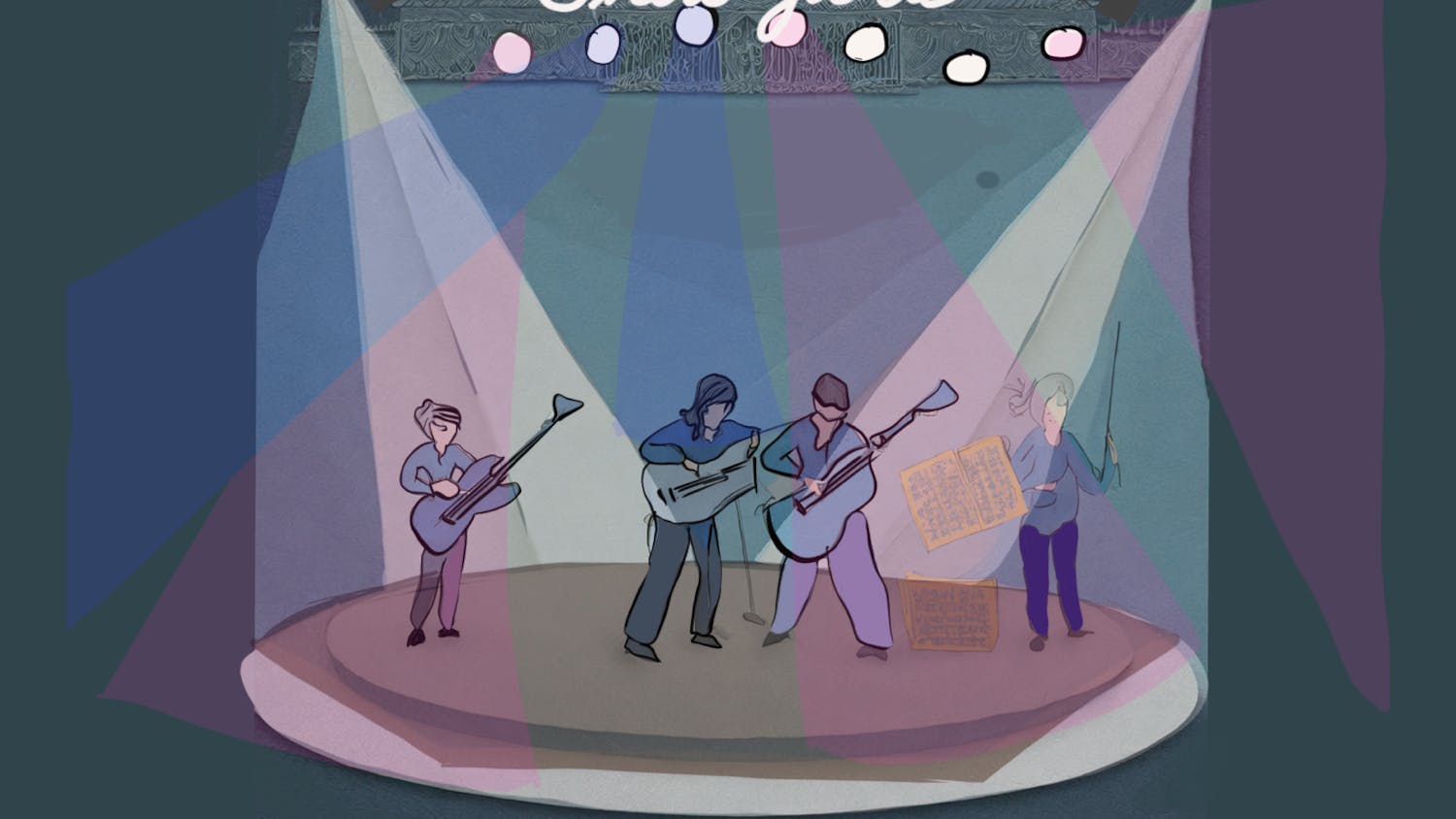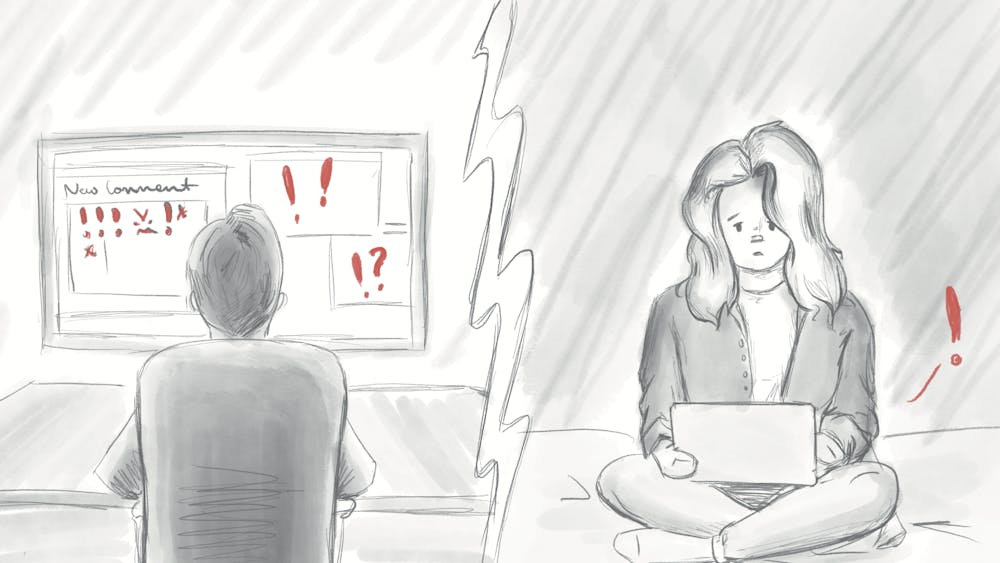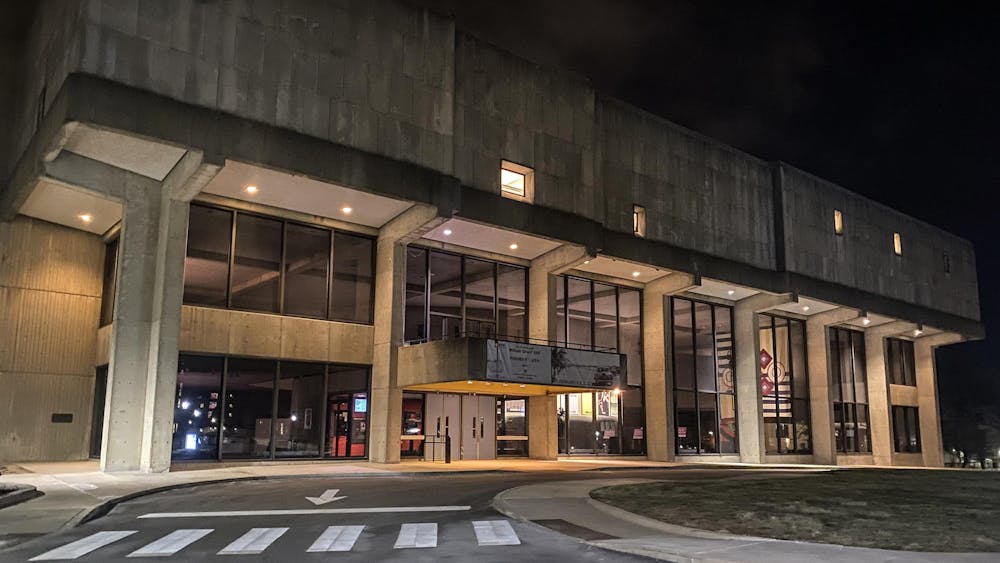The Roaring Twenties were a time of jazz, art deco and women cutting off their hair.
Musical comedy operetta “The Merry Widow,” set in this wild period, begins at 7 p.m. today in the Musical Arts Center.
Additional performances are scheduled for 8 p.m. Friday and Saturday and 2 p.m. Sunday.
The operetta’s 1920s setting breaks from the original production that premiered at the Theater an der Wien in Vienna in 1905, a time when operettas were both sentimental and comedic.
Librettists Viktor Léon and Leo Stein based the story on an 1861 comedy play called “The Embassy Attache,” with score by Austro-Hungarian composer Franz Lehár.
The musical comedy follows Baron Zeta, ambassador of the fictional Eastern European country Pontevedro, trying to get Hanna Glawari, widow of the wealthiest man in the fictional country Pontevedro, to marry Count Danilo Danilovich.
If Glawari marries a man who isn’t a native of Pontevedro, the country loses all of its money.
Stage Director Vincent Liotta, professor of music in opera studies at the Jacobs School, said he tends to look at the text of the play and see what it’s trying to tell him.
This is his fifth time stage directing “The Merry Widow.”
“It kind of started to jump out at me that what this needs is some place where it can have a lot more energy and be a lot less sedate,” he said. “And that is kind of what has driven the idea of the production.”
A little more than a year ago, Liotta began working on the operetta’s concept and also began retranslating the original German text into English.
Liotta said no one thinks of the early 20th century as racy but that the creators intended for “The Merry Widow” to be a modern piece.
After researching 1920s Paris, Liotta said he wanted to suggest that same racy feeling to audiences.
“The whole style is to make the most of the words, and in this case, it’s supposed to be a fairly fast-paced comedy,” he said. “So, we’re going to direct it like a fairly fast-paced comedy and not try to make it something that it isn’t just because it was written in 1905.”
For this production, the opera singers did more than just sing in German. “The Merry Widow” also combines dancing and English dialogue.
Elizabeth Toy, who plays lead Hanna Glawari, said the opera includes more dancing than any other she’s done.
“With the dialogue, you have to compose it yourself, as it were, so you have to think of how you want it to sound,” she said. “You can’t rely on what somebody else has already written.”
Toy, a first-year doctoral student at the Jacobs School, will perform Friday and
Sunday.
Having worked with Liotta in “Vincent” and “A View from the Bridge” in 2011, Toy said she thinks she understands his style of directing.
“I enjoy the fact that he allows his actors and his singers to make decisions,” she said. “He’s very in tune to the text and to the intention of the composer and the story, which I always appreciate.”
Baritone Christopher Grundy portrays Count Danilovich during productions with Toy.
While preparing for shows such as the “The Merry Widow,” Grundy said, the work is 90 percent studying the score and the libretto and 10 percent rehearsal.
“When you play a character like Danilo, you do have to spend most of your time figuring out what his relationships are with all the other people and how, in a very short amount of time on stage, you can convey all of these different relationships so that people immediately ... know how you relate,” he said.
Toy said “The Merry Widow” is a good opera due to the elements of dialogue and dancing.
“It’s really lighthearted and fun,” she said.
Roaring Twenties come back

Get stories like this in your inbox
Subscribe





